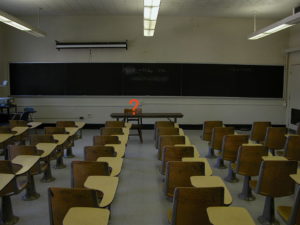
It is ironic that we are reading about how active presence of a teacher is a key element to CoI (community of inquiry), since this otl301 course and its precursors, otl101 and otl201 have notably lacked any real-time presence by monitors. There has been no feedback from instructors or designers of the training and little peer interaction, little in the way of what might be called community, in fact. We have been asked to consider several questions:
How has your view of the effective practice changed now that you have read more about teaching presence?
I think I have become more aware of how students feel when they enroll in a course and then feel left-to-dry by the curriculum and assignments sans human presence in the course. Reading about teaching presence has helped me to identify this lack in the current training agenda for online instructors at TRU-OL.
In what ways did the effective practice that you identified show the characteristics of teaching presence?
In my previous post, I reported a course where students collaborated to cover three times the amount of material on the subject of philosophy of language that they would have been able to cover by individual effort. I reported on the dynamics of class meetings and how students were entrusted with tasks whether others were dependent upon them to understand readings and to negotiate an understanding of various views of language and the basic questions considered by philosophers of language while they were formulating their own views in this regard.
My own knowledge of the field provided a certain amount of guidance and moderation when it was obvious that authors held divergent opinions and views. I could pull out quotes that I had collected, along with commentary I had provided in my own study. I could also guide students toward relevant sections of larger works that an initial reading might not be able to see as directly relevant to philosophy of language.
During the study groups sessions and the authorial review sessions, I floated between groups who were free to call on me to ‘referee’ disputes and provide suggestions for more focused study.
During the presentations, I moderated to make sure ideas were presented and questioned in a respectful manner, even when students of other authors had considered stances that were vastly different from the ones being presented.
How could the idea of teaching presence have made the experience even more effective than it was?
If I were to teach that course now, I would consider meetings with groups between class sessions to monitor individual study more closely, particularly with the more junior scholars. What I was effectively doing was teaching undergraduates (and graduates) in the style more like that of a graduate (or even post-graduate) seminar. Scholars with less experience can do this sort of study in groups, but they need more careful coaching and mentoring, given the distractions of undergraduate life.
2 replies on “Training in the absence of active presence by a teacher”
Hi, I wonder how you moderate discussion during presentation if the course is asynchronous?
I like your ideas of supporting junior scholars who are developing the language and ability to respond in a meaningful way to online course assignments and forums, but again, I wonder how this is possible and how not to generalize based on type of program (e.g. undergrad vs grad). Please let me know what you think.
Awesome layout by the way!
Cheers,
Manu
Thanks, Manu! I appreciate your comments and questions. You are quite right that “during” is a bit of a problem from an asynchronous perspective. I wonder whether we might think of the original presentation as being the introductory message in a forum message thread, where students could be invited to make comments and to generate a discourse around the presentation. (?)
Also, your question regarding the level of education of students (grad v. undergrad) raises important issues around properly assisting students to take on more active roles in their education. I would like to explore enhancing students’ initiative in their own education more, and I tend to think that we take our students’ supposed inabilities for granted rather than asking the question: How can I equip students to gain skills towards the completion of this work? Instead of: How can I make this assignment easy enough so students can complete it with a minimum of challenge/growth/development?
For my part, I would like to believe that students are capable of completing work they generally think are beyond their abilities. I have been inspired by Sugata Mitra (see TED talk) in this regard.